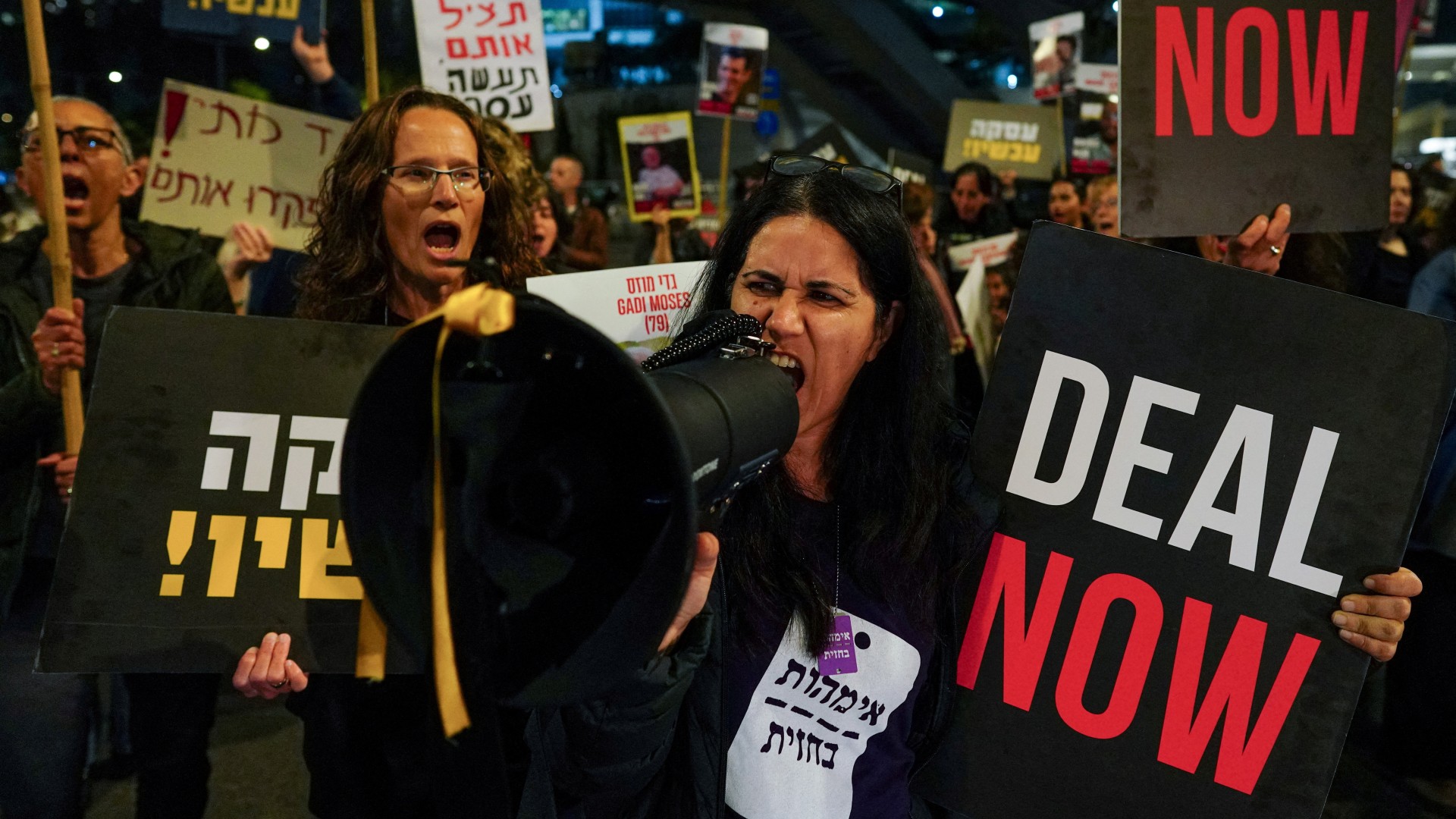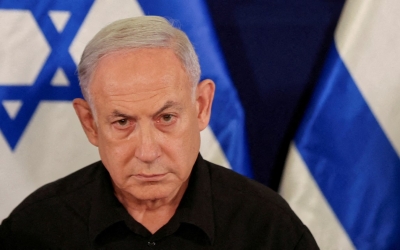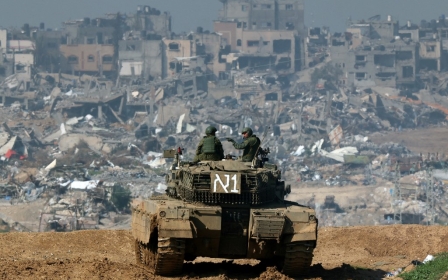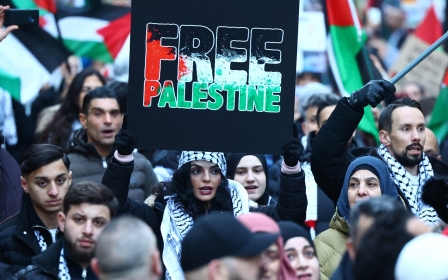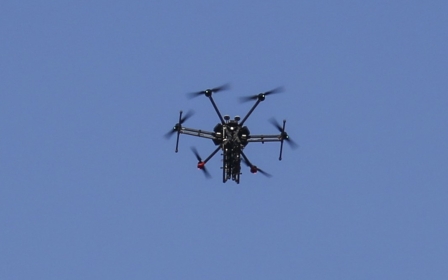War on Gaza: A coalition against Netanyahu's forever war is growing in Israel
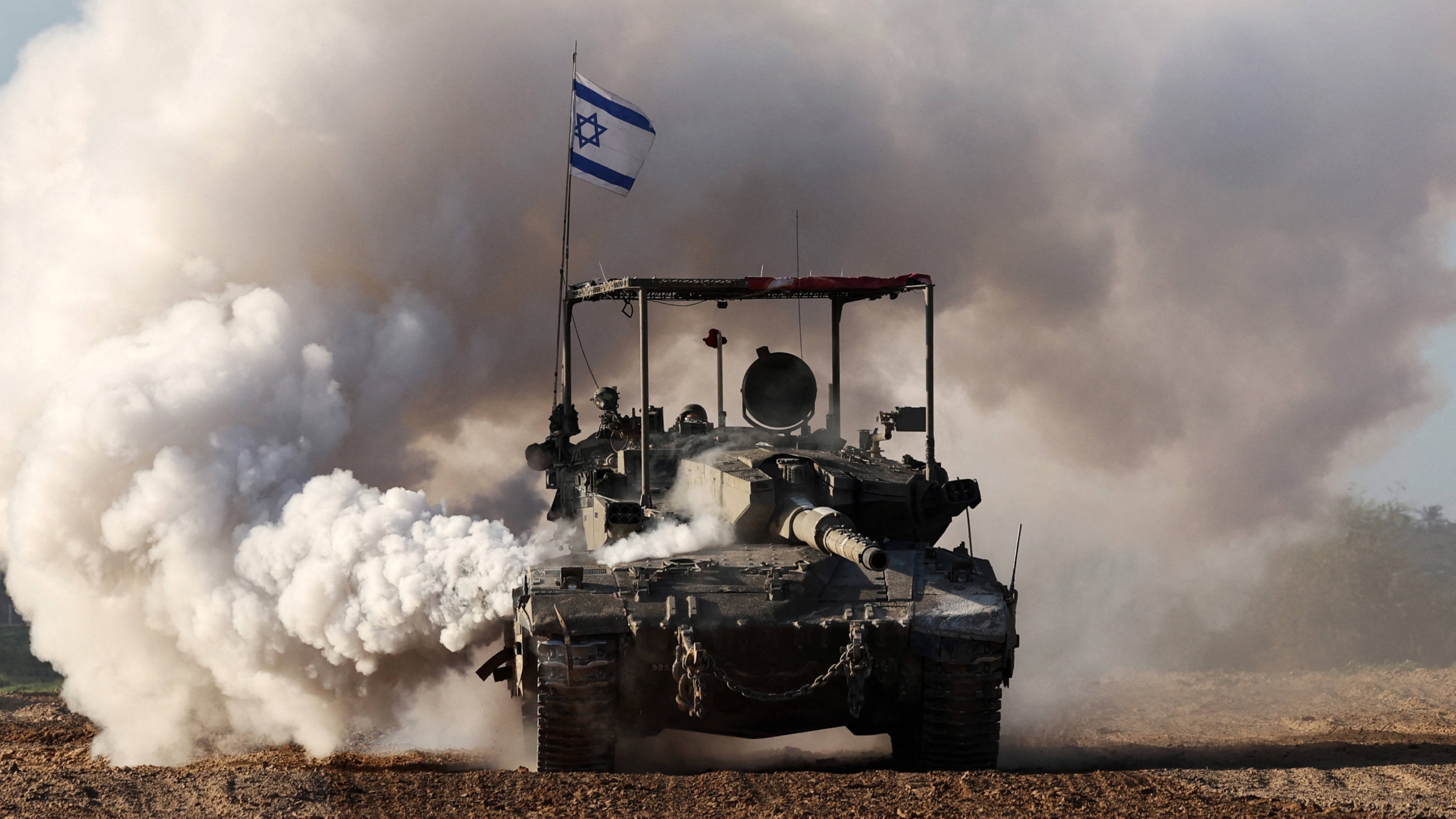
It is too early to say whether the loss of 21 Israeli soldiers in one day in central Gaza's Maghazi refugee camp will turn out to be a pivotal moment of the war in Gaza.
There are, certainly, precedents. One is the loss of 73 soldiers when two helicopters collided over Northern Galilee in 1997. That was the starting point of a protest movement which led to the withdrawal from Lebanon three years later.
But the loss at Maghazi of soldiers who were mostly reservists could certainly add to the growing war fatigue of the Israeli public, who are increasingly at a loss to understand what the war on Gaza is achieving.
While a majority continue to back the war, they are not buying the army’s claims that 17 out of Hamas’s 24 battalions have “collapsed”, that one-third of the Palestinian movement’s fighters have been killed, and that the Israeli military controls 60 percent of the territory in the Gaza Strip.
The soldiers at Magazi were mining houses for demolition in an area under army control. “Control” is becoming a relative concept, as Hamas’s hit-and-run strikes prove only too clearly.
Stay informed with MEE's newsletters
Sign up to get the latest alerts, insights and analysis, starting with Turkey Unpacked
Nor is it clear what the army is achieving in Khan Younis, more than six weeks after the army spokesman said that they have entered it. Khan Younis is not that big a place, and it’s certainly no Stalingrad.
There are two competing coalitions at play in Israel and yet neither have the decisive upper hand, for the moment.
This is Netanyahu's war
The first coalition is led by Prime Minister Benjamin Netanyahu. As the conflict drags on, it is very clear that this is his war.
It’s his war because the moment he stops it, his government crashes and Israel will turn on him for having let Israel’s guard down on 7 October.
It’s his war because he has raised the stakes so high, stressing each day that it has been his life’s mission to prevent a Palestinian state being created, and by saying Israel should have a permanent presence in Gaza - an objective that has not been approved by the war cabinet, which contains former rivals.
The army absolutely does not share that objective and is resisting Netanyahu’s wish to reoccupy the Philadelphi Corridor that runs along Gaza’s border with Egypt, without which no permanent Israeli military presence in Gaza can function.
The army’s primary war aim is to restore its lost honour and to restore the principle of deterrence on which the armed forces is built, the concept that heavy strikes deter Hamas and Hezbollah from attacking. The military and its ideology admit that peace does not exist but claim that Israel’s enemies are deterred.
This obviously did not happen on 7 October, or during the three and a half months that followed. Hamas is plainly not deterred from striking Israel at will despite the overwhelming military odds, the total destruction of Gaza and a growing famine.
The army high command is not happy with Netanyahu’s political leadership. They are not rushing to fulfil his order to take over the Egyptian border around Rafah, and they have withdrawn some of their forces from the northern part of Gaza.
The army does not have a clear position against a Palestinian state or the Palestinian Authority taking over Gaza post-war, as Netanyahu does. But it is clear about wishing to continue the campaign, because it would hate to see a situation in which war ends without a clear victory.
Once the army turns against Netanyahu, it would be very difficult for the prime minister to continue in power. But that moment has not yet come.
While neither Netanyahyu nor the army has succeeded in their basic war aims, both the army and the embattled prime minister have adopted the concept of endless war.
This coalition is uneasy, and both sides in this partnership have problems.
Netanyahu faces a hunger strike on his doorstep, demonstrations tens of thousands strong in Tel Aviv calling on him to quit, and mounting protest from the families of the 132 remaining captives, who on Monday broke into Israel’s parliament, the Knesset.
The army, on the other hand, faces what a leading expert on relations between the army and Israeli society, Professor Yagil Levy, calls a “Blue Collar rebellion”.
Levy says there is an unprecedented level of defiance among the rank and file in Gaza. Soldiers are taking pictures of themselves and Palestinian detainees in defiance of the army’s values. They are taking photographs in mosques, they talk of revenge, reoccupation - all messages that contradict the army’s basic codes.
There is also the suspicion that parts of the army were reluctant to withdraw from Gaza and that the military said the order was delayed “for technical reasons” to mask this.
Mounting doubts
On the other side there is a coalition of interests that leans towards a political outcome to the war.
Benny Gantz and Gadi Eisenkot, political opponents of Netanyahu who entered the war cabinet following the 7 October attack, do not in any way endorse the PA’s return to Gaza or a political solution that would create a Palestinian state. But neither have they said anything against it.
They appear at ease with the US push for a two-state solution and with the Saudi initiative, which predicates recognition of Israel on the creation of a Palestinian state.
Eisenkot said at a meeting held on the 100th day of the war that "we need to stop lying to ourselves, show courage and lead to a big deal that will bring the abductees home”, adding: “we are walking in like blind people.”
Defence Minister Yoav Gallant followed him and said openly that "a lack of political decision could harm the progress of the military operation". And it was reported on Channel 13 that even Chief of Staff Herzi Halevi said that because a strategy for "the day after" has not been built, "we are facing an erosion of the achievements we have achieved so far in the war".
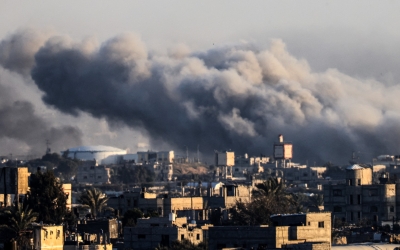
The doubts are not just in the war cabinet. Within Israeli society the pressures are mounting. Everyone predicts the economy this year will be disastrous, with skyrocketing deficits and mass layoffs.
Closely related to this are the army’s reservists, whom Gallant warned not to plan any holidays for the summer. Cases of conscious objection to a war, as happened in the First Intifada, are rare, and if a reservist refuses the call-up, he or she may get at most a month in prison.
It’s more often the case that refusers cite personal reasons, such as childcare, the risk of business failure or a pending university examination, and usually they don’t get prosecuted for that. Refusal is kept a private matter. But the reluctance to fight an endless war will inevitably grow.
There is also the reluctance of the population of southern Israel to return to their homes and kibbutzim while a war is raging on the other side of the fence. This can work for both camps. It could easily be used as a reason to prosecute the war until the very end.
The army is telling them they can go back home, but most refuse. They are far from being anti-war, but they don’t want a war of attrition. They want a decisive defeat of Hamas. Dropping an atomic bomb on Gaza or the return of the PA is all the same for them.
In the north, the threat of rockets from Hezbollah is substantial, particularly after the group’s use of long-range anti-tank missiles, for which Israel’s Iron Dome defence is worthless. There were 200,000 Israelis displaced after the Hamas attack. The majority of these will not go back to their homes in the foreseeable future.
Most of these elements are pushing for some kind of political deal to end the war. But the real problem in Israel is that no lobby is strong enough to end the war in a political settlement.
Facing them down are Netanyahu and the extreme right wing in his government, for whom the stakes are very high. An end to the war could lead to a dramatic change in the politics of Israel and the right wing understand what is at stake and will do everything in their power to stop it.
As yet neither coalition - the coalition of endless war, or the coalition which could conceive of a negotiated end to it - are dominant. A very small shift could tilt the balance between them.
This article is available in French on Middle East Eye French edition.
Middle East Eye delivers independent and unrivalled coverage and analysis of the Middle East, North Africa and beyond. To learn more about republishing this content and the associated fees, please fill out this form. More about MEE can be found here.


